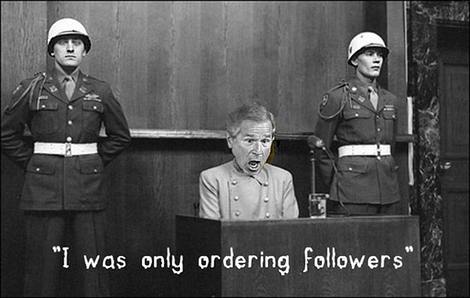Children of Polarization

By DAVID BROOKS
The New York Times
February 4, 2007
Last fall, I taught a political theory course at Duke University, as part of my lifelong quest to teach at every college I never could have gotten into out of high school. I asked my students to write a paper defining their political philosophy, because I thought it would be useful for them to organize their views into a coherent statement.
When I look back on those papers (which the students have given me permission to write about), I’m struck by the universal tone of postboomer pragmatism.
Today’s college students, remember, were born around 1987. They were 2 or 3 when the Berlin Wall fell. They have come into political consciousness amid impeachment, jihad, polarization and Iraq. Many of them seem to have reacted to these hothouse clashes not by becoming embroiled in the zealotry but by quietly drifting away from that whole political mode.
In general, their writing is calm, optimistic and ironical. Most students in my class showed an aversion to broad philosophical arguments and valued the readings that were concrete and even wonky. Many wrote that they had moved lately toward the center.
Remington Kendall, for example, grew up on a struggling ranch in Idaho. His father died when he was young and his family was poor enough at times to qualify for welfare, though his mother refused it. Duke, with its affluence and its liberal attitudes, was a different universe.
Kendall arrived deeply conservative and remains offended by people who won’t work hard to support themselves. But he now finds himself, as he says, cursed by centrism — trapped between the Pat Robertsons on the right and the Democratic elites on the left, many of whom he finds personally distasteful.
He has come to admire the prairie pragmatists, like Montana’s Jon Tester and Brian Schweitzer. In a long conversation with his brother Sage, who works on the ranch, Kendall decided that what the country needs is a party led by “entrepreneurial cowboy politicians” with a global perspective.
Jared Mueller grew up in a liberal enclave in Portland, Ore., and like Kendall is able to afford Duke thanks to financial aid.
He came to Duke with many conventional liberal attitudes, but he’d seen the failures of the schools in his neighborhood, where many of his smartest friends never made it to college. He’s a big fan of school vouchers and now considers himself a moderate Democrat: “I’m a Democrat because I think the Democratic Party is a better vehicle for the issues I care about: balancing the budget, checking President Bush’s foreign policy and curtailing global warming. However, I’ll switch to the Republicans in a heartbeat if I believe my ideas are better received in the G.O.P.”
For many students, the main axis of their politics is not between left and right but between idealism and realism. They have developed a suspicion of sweepingly idealistic political ventures, and are now a fascinating mixture of youthful hopefulness and antiutopian modesty.
They’ve been affected by the failures in Iraq (though interestingly, not a single one of them wrote about Iraq explicitly, or even wanted to grapple with the Middle East or Islamic extremism). But they’ve also seen government fail to deliver at home. A number wrote about the mediocrity of their local public schools. Several gave the back of their hand to the politics of multicultural grievance.
Many showed a visceral distaste for people who are overly certain or unable to see some truth in the other side. One student, Meng Zhou, quoted one of our readings from Reinhold Niebuhr: “A too confident sense of justice always leads to injustice.” Another, Kevin Troy, cited a passage from Max Weber’s essay “Politics as a Vocation”: “Politics means slow, powerful drilling through hard boards, with a mixture of passion and sense of proportion.”
If my Duke students are representative, then the U.S. is about to see a generation that is practical, anti-ideological, modest and centrist (maybe to a fault).
That’s probably good news for presidential candidates like Rudy Giuliani and Hillary Clinton, whose main selling point is their nuts-and-bolts ability to get things done.
But over all it’s bad news for Republicans. While the G.O.P. was once thought of as the practical, businesslike party, now most of my students see the Republicans as the impractical, ideological party — on social and science issues as well as foreign and domestic policy.
That’s not the way to win the children of polarization.
David Brooks, The New York Times, Politics, Colleges and Universities, International Relations, Duke University, news, commentary, op ed
COMMENT:
>>>>If my Duke students are representative, then the U.S. is about to see a generation that is practical, anti-ideological, modest and centrist (maybe to a fault).
Yeah but they’re not representative. Representative? Representative of what? Somebody ought to give Brooks a good shaking.
The neocons are praying 24/7 these days that all roads lead to some kind of safe fantastical Fanatical Center after all the damage their ilk have done the American & the World fabric.
First it was the End of History…then it was the death of New Deal/Great Society liberalism…& now everybody’s heading for the Vital Middle wherein dwells the essence of namby-pamby Jerk Ethic two-facedness.
>>>>“I’ll switch to the Republicans in a heartbeat if I believe my ideas are better received in the G.O.P.”
Why do I have a strange feeling this guy Remington Kendall (& those like him) will eventually be heading for the GOP anyway even if that party becomes even more reactionary than they are at present.
Brooks is typical of those “wrong-wingers” who’ve seen their own ideology collapse in utter folly & so despite the signs of the times--at home & abroad--hope for the end of political partisanship as well--especially a partisanship of the Left.
>>>>But over all it’s bad news for Republicans. While the G.O.P. was once thought of as the practical, businesslike party, now most of my students see the Republicans as the impractical, ideological party — on social and science issues as well as foreign and domestic policy.
But at least Brooks has got that part right.
====

























